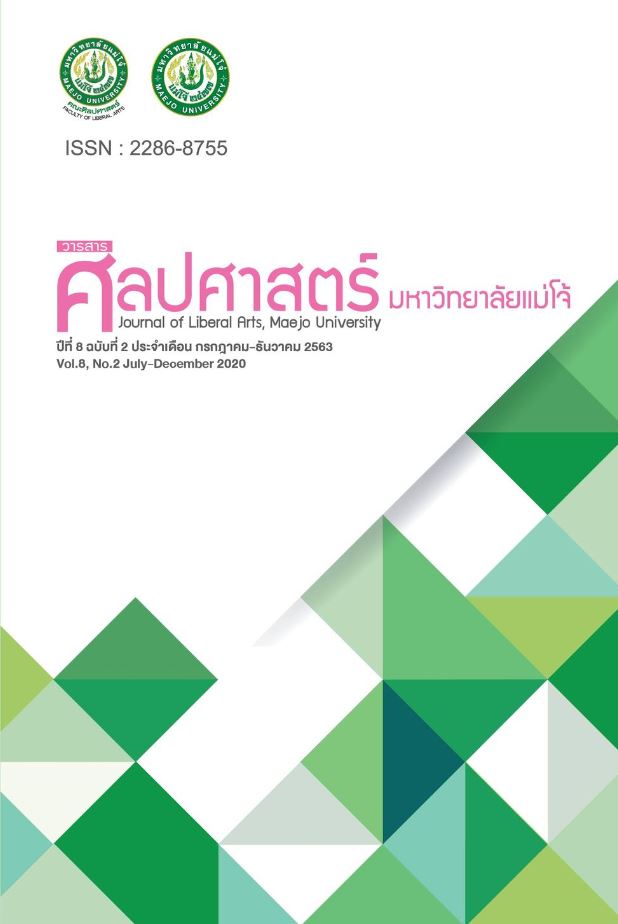State and Problem of Sports Tourism Management in Chiang Mai Province
Main Article Content
Abstract
The objective of the study was to study of state and problem of sports tourism management in Chiang Mai Province was a qualitative research. There were 3 data collection methods: secondary data study, in-depth Interviewing and non-participant observation. The results of the study revealed that sports tourism organizations in both public and private sectors in Chiang Mai Province had main objectives in giving service, promoting and developing tourism. Their managerial objective was to promote tourism in all dimensions, raising the standard along with the development of personnel and research. There was a planning in line with the policies and plans for tourism development at the provincial and national levels. The working standards were set up based on the regulations of each organization, but still affected with budget constraints. For the organization and work system, it was found that the work was assigned accordingly to the structure of the organization but not yet covering the decision-making power of the budget. As for the organizational leadership, there was a decision-making process based on organizational principles but encountered obstacles in the delay and personnel recruitment problems. In addition, in terms of task monitoring, it was found that there was tracking with systematic forms and processes for assessment. However, the study revealed that some personnel were bored and there was an inequality in performance evaluation. For guidelines of sports tourism management in Chiang Mai, aspects that should be considered were location, management, activities and process including the elements of participation to achieve sustainable development.
Article Details
References
กระทรวงการท่องเที่ยวและกีฬา.
กระทรวงการท่องเที่ยวและกีฬา. (2560). แผนพัฒนาการท่องเที่ยวแห่งชาติฉบับที่ 2 พ.ศ. 2560 - 2564. กรุงเทพฯ:
กระทรวงการท่องเที่ยวและกีฬา.
การท่องเที่ยวแห่งประเทศไทย. (2559). กิจกรรมการท่องเที่ยวจังหวัดเชียงใหม่. สืบค้น 10 มีนาคม 2559, จาก
http://thai.tourismthailand.org/กิจกรรมท่องเที่ยว/ค้นหา?view=101&lifestyle_id=23&cat_id=&subcat
กิติศักดิ์ พลอยพานิชเจริญ. (2550). หลักการการควบคุมคุณภาพ. กรุงเทพฯ: สมาคมสงเสริมเทคโนโลยี (ไทย-ญี่ปุน).
บุญเลิศ จิตตั้งวัฒนา. (2559). การจัดการด้านการตลาดอุตสาหกรรมกรรมการท่องเที่ยว. พิมพ์ครั้งที่ 3. กรุงเทพฯ:
ศูนย์หนังสือมหาวิทยาลัยธรรมศาสตร์.
รังสรรค์ ประเสริฐศรี. (2549). การจัดการสมัยใหม่. กรุงเทพฯ: ธรรมสาร.
ศิริวรรณ เสรีรัตน์ และคณะ. (2545). องค์การและการจัดการ. กรุงเทพฯ: ธรรมสาธร.
สราวุฒิ พงษ์พิพัฒน์, ประกรณ์ ตุ้ยศรี, ณัชชาจารย์ โรจน์วัฒนดิษกุล. (2559). การบริหารจัดการศูนย์กีฬาและ
วิทยาศาสตร์การกีฬาในมหาวิทยาลัย. (รายงานการวิจัย). เชียงใหม่: มหาวิทยาลัยเชียงใหม่.
สาคร สุขศรีวงศ์. (2560). การจัดการ : จากมุมมองนักบริหาร. (พิมพ์ครั้งที่ 15). กรุงเทพฯ: จีพี. ไซเบอร์พรินท์.
สุกัญญา โฆวิไลกูล. (2547). การวิเคราะห์ระบบเพื่อการบริหารสถาบันอุดมศึกษา. กรุงเทพฯ: โรงพิมพ์แห่งจุฬาลงกรณ์
มหาวิทยาลัย.
สำนักงานปลัดกระทรวงการท่องเที่ยวและกีฬา. (2555). ยุทธศาสตร์สำนักงานปลัดกระทรวงการท่องเที่ยวและกีฬา
พ.ศ. 2555 - 2559. กรุงเทพฯ: กระทรวงการท่องเที่ยวและกีฬา.
สำนักงานสถิติจังหวัดเชียงใหม่. (2558). ฐานข้อมูลตารางสถิติจังหวัดเชียงใหม่. สืบค้น 2 มีนาคม 2559, จาก
http://chiangmai.nso.go.th/chmai/index
อานนท์ สีดาเพ็ง. (2559). รูปแบบการจัดการท่องเที่ยวเชิงกีฬากอล์ฟโดยการประยุกต์ทฤษฎีการแลกเปลี่ยนทางสังคม.
(ดุษฎีนิพนธ์ปรัชญาดุษฎีบัณฑิต). ชลบุรี: มหาวิทยาลัยบูรพา.
Stott, K., & Walker, A. (1992). Making Management Work: A Practical Application. New Jersey:
Prentice-Hall.

